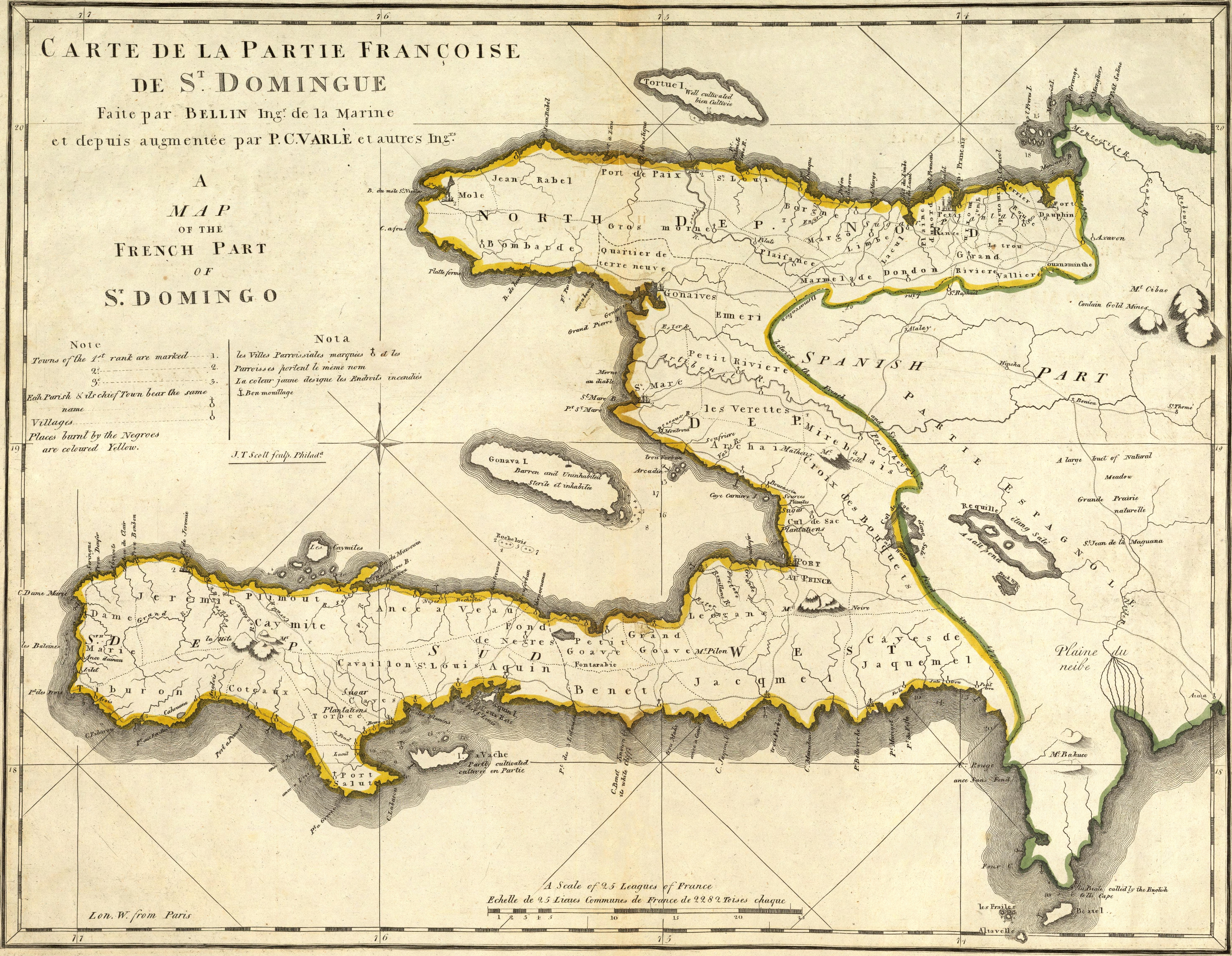Welcome to A Colony in Crisis
In early 2026, the domain for A Colony in Crisis will revert to colonyincrisis.wordpress.com. A redirect from colonyincrisis.lib.umd.edu will be in place, but only temporarily, so please update links accordingly. Thank you for your patience.
The website is designed to provide online access to the French originals as well as the English and Haitian Creole translations of key primary sources dealing with the grain shortage faced by the colony of Saint-Domingue in 1789, which are found under the Translations menu. Alongside the French original, each translation is presented with a brief historical introduction to situate the reader in the time period and help understand how this particular pamphlet fits into the episode. Each document has been reviewed by one of the scholars detailed in the Project Phases page. These pamphlets are primarily drawn from the University of Maryland’s Special Collections, although related items available at other institutions have been included as well. Please see our Worldcat list if you are interested in the physical items.
The primary goal of A Colony in Crisis is to get these fascinating and underutilized pamphlets into more hands and shed light on an interesting chapter in the history of Saint-Domingue. Visit the the Project page to read more. The original initiative, which included French originals with their English translations, was part of UMD’s Revealing La Révolution project.
Be sure to stop by our Acknowledgements page for a full list of the people and places behind A Colony in Crisis. We could not have done it without their support.
By no means do we claim the final word on the Grain Shortage of 1789. Please review the Additional Resources list and join our Zotero Group to contribute to the library so the website’s users can follow up and learn more!
Since 2018, the project has grown to include a Haitian Creole addition to A Colony in Crisis, originally initiated by Haitian Creole Project Director Laurence Jay-Rayon Ibrahim Aibo, translators Daphney Vastey and Pierre Malbranche. Since then, the Haitian Creole translation side of the project received multiple rounds of funding from the New Jersey Council for the Humanities and has partnered with the University of Orange, which serves as their fiscal sponsor.


This is a very great initiative, especially for native English speakers! I’m francophone, but this is a website I will be more than happy to share around!
Very useful for my students at UCONN.
Critical thinking has long been considered as heresy with the arrival of “identity politics” and “identity academia” . This is an exemplary case study.
This is great! I look forward to using this with my students.